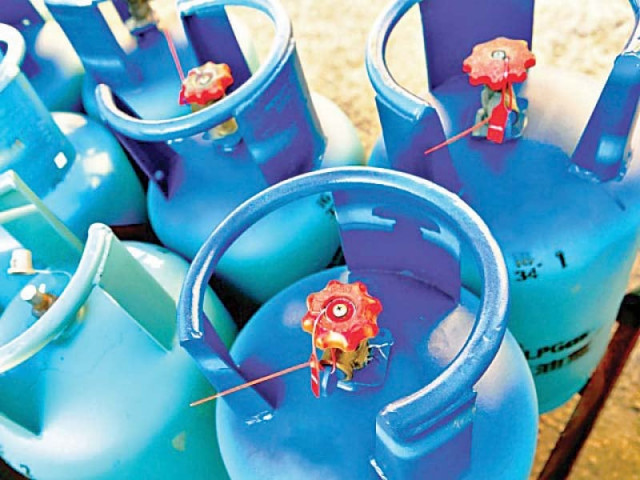Govt plans to deregulate LPG prices
Public sector companies are reluctant to import LPG due to price fluctuations

The LPG Policy 2016 provides that the federal government, from time to time, will determine the quantity to be imported by public sector companies. PHOTO: FILE
This development comes amid reluctance of public sector companies to import LPG due to sudden fluctuations in its prices.
According to Petroleum Division officials, the LPG Policy 2016, approved by the Council of Common Interests (CCI), provides that the federal government, from time to time, in consultation with the Oil and Gas Regulatory Authority (Ogra) and relevant stakeholders, will determine the quantity to be imported by public sector companies.
However, public sector companies - Pakistan State Oil (PSO) and Sui Southern Gas Company (SSGC) - are reluctant to import LPG under this policy as they have to follow the procurement process in line with Public Procurement Regulatory Authority (PPRA) rules.
LPG price rises by Rs7 per kg
Also, at times it becomes difficult to handle the product in case of sudden fluctuation in LPG prices.
Moreover, there is an issue of LPG storage with PSO, which can result in financial loss to the national exchequer.
The officials explained that private sector importers could deal with these price fluctuations both on spot and long-term basis as they did not have to follow the PPRA rules.
The matter of amendment to the LPG Policy 2016 will be taken up separately at the CCI. The Economic Coordination Committee (ECC), in its recent meeting, recommended that LPG prices should be deregulated and a proposal may be submitted to the CCI for consideration and approval.
Referring to the abnormal increase in LPG prices, the Petroleum Division said LPG rates including producer prices, marketing and distribution margins, sales tax and regulatory duty were notified by Ogra every month.
Government enhances inspection fee of LPG filling stations
The prices have been showing an upward trend since March 2018. Major factors contributing to this are higher LPG prices in the international market and depreciation of the rupee against the US dollar.
The producer prices notified by Ogra are linked to the Saudi Aramco contract price which is a benchmark followed in the region for LPG prices. The ECC meeting was informed that the other factor contributing to the price hike was the reduction in imports from February to August 2018.
As per the trend of LPG imports during 2017, about 40,000 to 50,000 tons per month would be required from November 2018 to February 2019. In order to address the supply challenges, two meetings were held which were chaired by the Petroleum Division minister and secretary respectively. All stakeholders including the LPG Association of Pakistan, LPG producers, LPG importers, the consumer rights body and Ogra were invited to the meetings.
They noted that the situation could be improved by importing more LPG. In order to proceed further, it was suggested by the LPG importers that some incentives should be given which included the removal of general sales tax and regulatory duty and reduction and adjustment in income tax at the import stage.
The local industry also demanded the same incentives as sought by the LPG importers, arguing that the domestic industry would be impacted adversely if it was denied the concessions.
The ECC decided to abolish the regulatory duty on the import of LPG. It was also decided that general sales tax on imported LPG would be charged at a reduced rate of 10%.
Published in The Express Tribune, October 3rd, 2018.
Like Business on Facebook, follow @TribuneBiz on Twitter to stay informed and join in the conversation.


















COMMENTS
Comments are moderated and generally will be posted if they are on-topic and not abusive.
For more information, please see our Comments FAQ